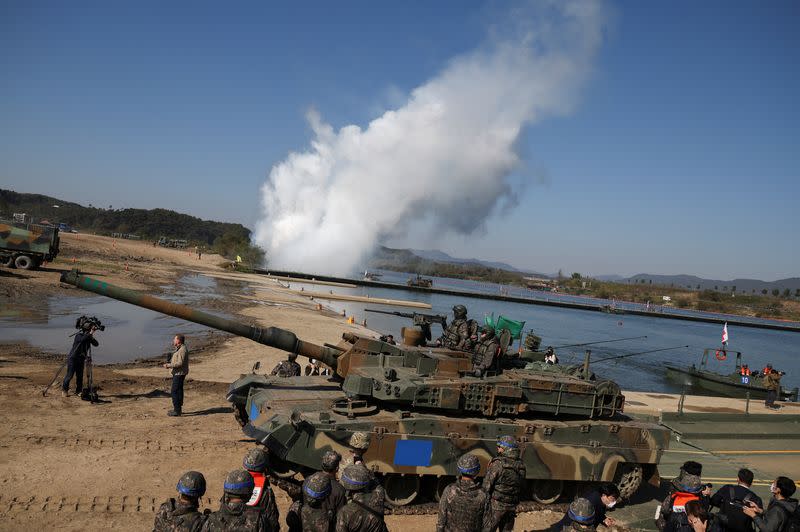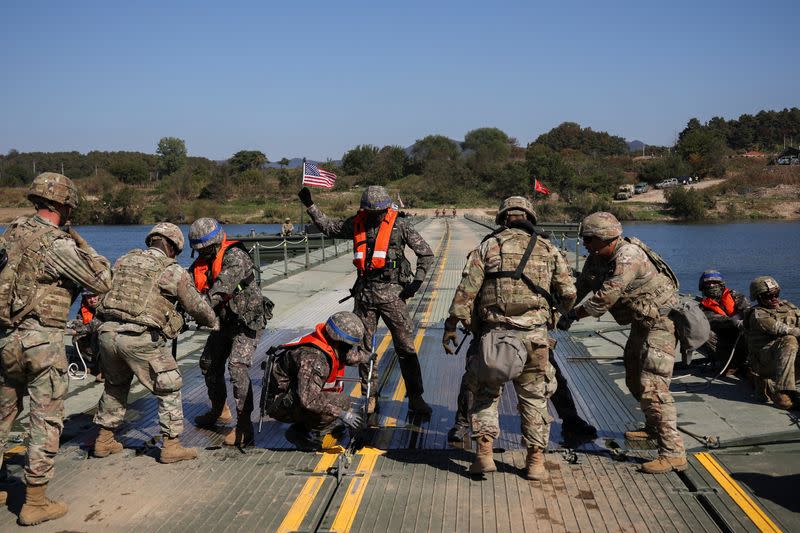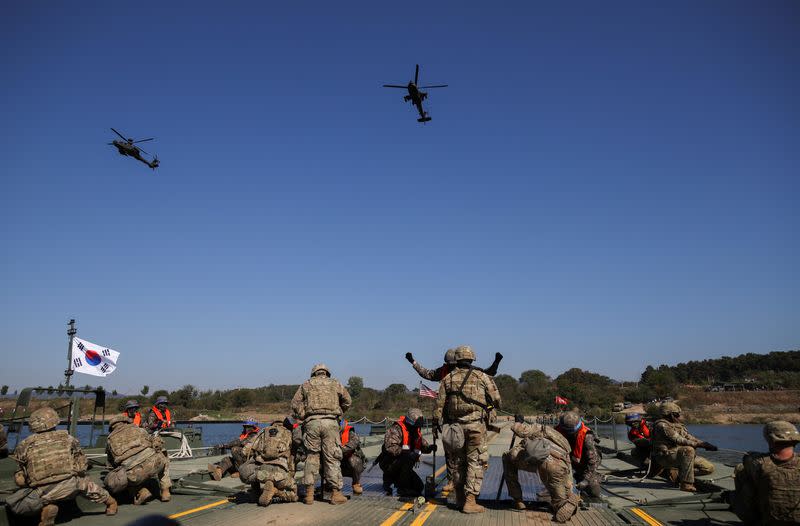U.S., S.Korean troops stage river-crossing drills as North Korea protests
By Josh Smith
YEOJU, South Korea (Reuters) - South Korean and American troops practiced building floating bridges to ferry tanks and other armoured vehicles across rivers on Wednesday, part of a larger joint military exercise that has angered North Korea.
South Korean attack helicopters deployed flares and armoured vehicles blew white smoke screens into the air as main battle tanks, armoured personnel carriers, and other military vehicles crossed pontoon bridges over the Namhan River near Yeoju, south of Seoul.
The drill involved armoured "attacking" forces of the South Korean army's 11th Mobile Division, which is participating in the 12-day Hoguk 22 field exercises, crossing bridges established by South Korean and U.S. engineering units.
North Korea has condemned the drills for raising tensions and has test-fired rockets and artillery in response. South Korea and the United States say the drills are defensive, and necessary for deterring the North.
About 1,000 South Korean and U.S. troops participated on Wednesday, with about 50 tanks and other armoured vehicles, KF-16 fighter jets, Apache and Cobra attack helicopters, and more than 140 pieces of engineering equipment such as floating bridge units, according to South Korea's defence ministry.
Nearby, residents water skied on the river and rode by on riverside bicycle paths.
The drills simulated a so-called wet gap crossing, military jargon for any obstacle filled with water, such as a river, said Captain Sean Kasprisin, a company commander in the U.S. Army's 11th Engineer Battalion, calling it "tough and realistic training".
In a war, such operations might be required if bridges were knocked out by bombing, or if an army wanted to surprise its opponents by crossing away from established bridges or roads.
"Developing river-crossing capabilities is a key factor that can make or break wartime operations given the Korean peninsula's geography with many rivers," said Lieutenant Colonel Won Seong-hoon of the South Korean 7th Engineer Brigade.
South Korea uses an older version of U.S.-made bridging equipment, and one span was assembled using elements from each side, allowing troops to practice combining the different systems.
"A lot of rivers can vary in how far across they are, so we don't know where we need to deploy," Kasprisin said. "So if that length is too far, then we need to be able to work together."
Despite the tensions with North Korea, U.S. soldiers said they rarely had time to ponder geopolitics during the drills.
"The only thing on our mind is the training and making it realistic and effective," Kasprisin said.
(Reporting by Josh Smith; Additional reporting by Daewoung Kim and Soo-hyang Choi; Editing by Robert Birsel)

 Yahoo News
Yahoo News 










